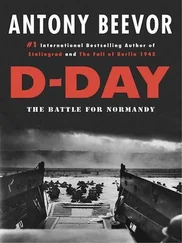Just as Mithradates eventually met his Panticap$$um, so Napoleon met his Waterloo. Even had Napoleon won there he would sooner or later have been defeated by one or more of the vast Russian, Austrian and Prussian armies that were converging upon France. So does that mean that Waterloo was in fact insignificant, not one of the great turning points of history at all? No; it is important because of the decisive and undeniable way that it finished off la Gloire, the French sense of military superiority that had been the central factor of European politics ever since Napoleon had taken over command of the Army of Italy in March 1796. Without la Gloire, France has had to live on her myths and with her ever-mounting roll of defeats, from Sedan to 1940 to Dien Bien Phu.
If it opened a long era of French military humiliation, Waterloo also heralded the true beginning of the modern British Empire. Of course there had been significant colonial acquisitions long before Waterloo, including the Indian, Canadian and Caribbean territories won in the Seven Years’ War in the mid-eighteenth century, but the victory at Waterloo and the subsequent Congress of Vienna set Britain on the path of seemingly unlimited imperial territorial acquisition. With crucial nodal points being awarded to the United Kingdom by the Final Act of the Congress of Vienna, such as Malta, Heligoland, Ceylon, Tobago and Santa Lucia, as well as the sale of the Cape Colonies to Britain by Holland, Britain had all the strategic building blocks in place necessary for her subjects to swarm over Africa and Asia in the way they were to do over the next century.
The United States, too, benefited — if at one remove — from the defeat of Napoleon, following which there was not even the faintest danger of the Louisiana Purchase of 1804 being renationalised by a powerful French Empire. After the end of her two wars against Britain between 1812 and 1815, the United States was left entirely free to expand westwards and devote all her energies into exploiting her apparently limitless continental resources. By 1900 she could plausibly claim to have a manifest destiny to become a global superpower, which she triumphantly did in the coming twentieth century.
APPENDIX I
Major Robert Dick’s Letter from Brussels
The writer of this hitherto unpublished letter was Robert Henry Dick, son of Dr William Dick of Tullymeet House, Perthshire. At the time of writing Robert Dick was a major in the 42nd Royal Highland Regiment (the Black Watch), although with the brevet rank of lieutenant-colonel since October 1812. He had fought at the battles of Fuentes d’Onoro and Salamanca. Unlike most letters about Waterloo, which were sent after the battle, this was written prior to it. It is in the possession of the author.
We know that Dick attended the Duchess of Richmond’s ball on 15 June 1815 because ‘Col. Dick, 42nd (killed at Sobraon, 1846)’ appears in the list of attendees that Lady de Ros gave to Sir William Fraser, and his name can be found on page 27 of Sir William’s 1897 account of the occasion, The Waterloo Ball.
The morning after the ball the 42nd were rushed to the battlefield of Quatre Bras as part of the 5th Division, arriving there just before 3 p.m. on 16 June. In the fierce fighting Sir Robert Macara, a colonel of the regiment, was killed, and Robert Dick — who had been seriously wounded by a musket shot to the shoulder — took over command until he fainted from loss of blood. The regiment finally withdrew as evening fell, and fought against d’Erlon’s corps at Waterloo two days later. Dick rose to command the 73rd Regiment in 1845, only to die at the moment of victory at the battle of Sobraon the following year.
This letter, sent to his father in set H4 at Albany, in Piccadilly, is evocative of the atmosphere in the upper reaches of the British army less than a week before Waterloo:
Brussels. June 12th 1815
My Very Dear Father
I was in hopes ere this to have had the pleasure of hearing from you in answer to the letter I wrote you from this place on my arrival. Our Division has been formed here consisting of two British brigades and one Hanoverian. We have been pretty much employed our Regiment being very fond of giving as little trouble as possible. The Duke [of Wellington] gave another Ball the other night and when he saw me came up again and shook hands. The Duchess of Richmond who was there a little time after which I was speaking asked me if I had heard of the Marquis [of Huntly, the Duchess’s brother, and a colonel in the 42nd]. I said not but was anxious to see him as I wished him to interest himself to get me the 2nd colonelcy of the Regiment. She said she was sure her brother would do anything he could for me and then turning round said; that Great Man pointing to the Duke would I am sure do so likewise for I never heard him speak more handsomely of any young man than he did of you last night at my house. It may not be of any service but at any rate it is pleasant to be spoken well of by so great a Man. I have been invited to the Duchess’s parties and am engaged to one on Thursday next. If we remain but from what I hear from very good authority I think that the army will move away soon. I hope we shall make a good hand of it, but I wish we had the Army the Duke had in Spain. The British Infantry is in five Divisions (another division is forming at Ghent) consisting in Effectives not more than four thousand R & I in each Division. The Cavalry British seven thousand very fine & there is a great force of Artillery. I suppose the whole British cannot be much more than thirty five thousand Effectives. There are 29 thousand Belgians, not I fear to be trusted as they all have served under Bone [Bonaparte]. The Dutch are about 30 thousand. I am told pretty good [but] I have not seen them. The Hanoverians are fine both Cavalry and Infantry. Each British division has a brigade of them. It is said Soult has arrived to take the Command of the Army. Approved by Wellington. A Blow will be struck by one side or other before the 23rd of this month. I am astonished Bone does not attack either Prussians or us before the whole of the Russians arrive. He might beat us in detach. I have not seen [his brother-in-law Lieutenant-Colonel the Hon. William George] Harris [who was to command the 2nd Battalion of the 73rd Regiment at Waterloo] as yet. I have been intending to go every day but something or other has always prevented me. My Horses have lamed one another & are hardly able to move & one I was obliged to shoot yesterday for the Flanders malady. I had him in a different stable from the others or I should have lost all of them and have been ruined. I heard from Harris yesterday he was quite well.
I am ever
Your Dutiful Son
R. H. D.
APPENDIX II
Captain Fortune Brack’s Letter of 1835
This is taken from the letter written twenty years after the battle by Captain Fortune Brack of the 2nd Chevaux-légers Lancers of the Guard, who might well have been instrumental in catapulting Ney’s cavalry towards its disastrous series of attacks against the British squares. It was originally quoted in Digby Smith’s Charge!: Great Cavalry Charges of the Napoleonic Wars (Greenhill Books) in 2003. Considering what catastrophe sprang from Captain Brack’s actions, it is unlikely that he would have wished to invent his testimony. Certainly, one may search in vain for the name of Captain Brack in books on Waterloo. In my view Mr Smith has made a significant contribution to the sum of our knowledge of why, ultimately, Napoleon fell from power. Here is Brack’s explanation, which is worth reprinting at length not only for its intrinsic evidence, but also for the superb description of what it was like for a lancer to charge a square:
Impassioned by our recent success against Ponsonby, and by the forward movement that I had noticed being executed by the cuirassiers on our right, I exclaimed, ‘The English are lost! The position on which they have been thrown back makes it clear. They can only retreat by one narrow road confined between impassable woods. One broken stone on this road and their entire army will be ours! Either their general is the most ignorant of officers, or he has lost his head! The English will realise their situation — there — look — they have uncoupled their guns.’
Читать дальше
Конец ознакомительного отрывка
Купить книгу











